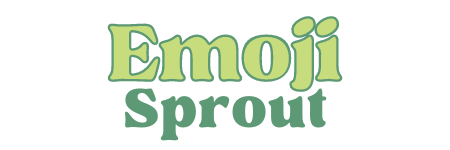Australian slang is a unique and fascinating aspect of the country’s culture. From “G’day mate” to “fair dinkum,” the slang used by Aussies can sometimes seem like a whole different language.
However, with the rise of emojis in modern communication, many of these Australian phrases have been translated into these small, colorful characters.
In this listicle, we’ll explore some of the most popular emoji representations of Australian slang.
1. 🐨 Koala
The koala is a beloved symbol of Australia and is often used to represent the country. When used in conversation, the koala emoji can be a shorthand way of saying “Australia” or “Aussie.”
2. 🤙 Shaka
The call me hand emoji, or shaka, is often used in Australia to mean shaka or “all good.” It can be used to say that everything’s going fine or to give a thumbs up of approval.
3. 🍺 Beer Mug
An Australian favorite, the beer mug emoji is often used to represent “cheers” or to invite someone out for a cold beverage. It’s also used in place of other slang words like “grog,” which means alcohol.
4. 🌭 Sausage
The hot dog emoji is a playful way to express “hungry” or “let’s eat.” The phrase “Let’s get a snag” (sausage) is commonly used in Australia, making the hot dog emoji an easy and convenient way to let someone know you’re ready for dinner.
5. 🏖️ Beach With Umbrella
The beach with umbrella emoji may be used to represent the beautiful beaches of Australia. It can also be used to say, “Let’s go to the beach!” or as a way to invite someone out for some fun in the sun.
6. 🦘 Kangaroo
The kangaroo emoji is a representation of the country’s national animal. It can be used to express pride in Australian culture or as shorthand for saying “Aussie” or “Australia.”
7. 🤠 Cowboy Hat Face
The cowboy hat face emoji is often used to represent a laid-back attitude, much like the phrase “no worries.” It can also be used to show that you’re in a relaxed and casual mood.
8. 🌞 Sun With Face
With its warm climate and sunny weather, Australia is known as the “Land Down Under.” Aussies use this emoji to represent their love for the sun and their laid-back lifestyle.
9. 🐊 Crocodile
The crocodile emoji is used to represent the dangerous creatures found in Australia’s outback. It can also be used as a subtle warning or as shorthand for saying “watch out” when you don’t want to get too specific.
10. 🌿 Herb
The herb emoji is often used to represent the cannabis culture that exists in some parts of Australia. But keep in mind that there are other occasions where this emoji is used to represent eucalyptus or other herbs found in the country.
11. 🦐 Shrimp
Aussies love their seafood, and prawns are a popular dish at many Australian barbecues and gatherings. This emoji represents the love Aussies have for fresh and delicious seafood.
12. 🍖🔥 Barbie (Barbecue)
The word “barbie” is a colloquial term for barbecue, a popular outdoor cooking activity in Australia. The corresponding emoji shows a piece of meat on a grill, which is often associated with barbecues
13. 🍩 Donut
Aussies have a unique way of spelling some words, and one of them is “doughnut,” which they spell as “donut.” This emoji is often used to represent this Aussie spelling and to show their love for this delicious treat.
14. 🏄 Person Surfing
Surfing is a popular pastime in Australia, and the person surfing emoji is used to show their love for this sport. It can also be used to invite someone out for some fun in the waves.
15. 🚿 Shower
In Australian slang, “shower” typically refers to a brief rain or a light rain shower. This usage is similar to the American English term “sprinkle”. For example, “It’s just a quick shower, it will pass soon.”
16. 🌇 Arvo (Afternoon)
The word “arvo” is a shortened form of “afternoon” and is commonly used in Australia. The corresponding emoji shows a sunset, which is often associated with the end of the day and the onset of the evening.
17 🍳 Brekkie (Breakfast)
The word “brekkie” is a shortened form of “breakfast”. The corresponding emoji shows a fried egg, which is common breakfast food.
18. 🤏🏽👥 Chockers (Full, crowded)
The word “chockers” means full or crowded. The corresponding emoji shows a hand with fingers pinched together, indicating something small or narrow, along with two people holding hands, suggesting that space is crowded.
19. 🤔💭 Fair dinkum (Seriously, honestly)
The phrase “fair dinkum” means seriously or honestly. The corresponding emoji shows a person with a thoughtful expression, perhaps indicating that they are taking something seriously or honestly considering a situation.
20. 👋🏼🌅 G’day (Hello)
The word “g’day” is a shortened form of “good day” and is a common greeting in Australia. The corresponding emoji shows a person waving hello, along with a sunrise in the background.
21. 🍔🍟 Maccas (McDonald’s)
The word “Maccas” is a colloquial term for McDonald’s, a popular fast-food chain in Australia. The corresponding emoji shows a burger and fries, which are commonly served at McDonald’s.
22. 🚗⛽️ Servo (Service station)
The word “servo” is a shortened form of “service station”, which is where people go to refuel their cars. The corresponding emoji shows a car along with a gas pump, which is often found at a service station.
23. 🤞🏼👍🏼 She’ll be right (Everything will be okay)
The phrase “she’ll be right” means everything will be okay. The corresponding emoji shows a hand with fingers crossed, indicating a hopeful attitude, along with a thumbs up, suggesting that everything will be okay.
24. 🩴 Thongs (Flip-flops)
The word “thongs” is a common Australian term for flip-flops, a type of footwear. The corresponding emoji shows a sandal, which is similar to a flip-flop.
25. 🚙🛻 Ute (Utility vehicle)
The word “ute” is a shortened form of “utility vehicle”, which is a type of pickup truck. The corresponding emoji shows a car along with a truck bed, indicating that it is a vehicle designed for work and practical use.
26. 🤙🏼🤘🏼 Yew (Expression of excitement)
The word “yew” is an Australian expression of excitement, similar to “woo-hoo” or “yeah”. The corresponding emoji shows a hand with pinky and thumb extended, often used to signify “hang loose” or “rock on”.
27. 🤓👴🏼 Daggy (Unfashionable, out of date)
The word “daggy” means unfashionable or out of date. The corresponding emoji shows a face with glasses, suggesting someone who might be considered “nerdy” or “out of touch”.
28. 🇦🇺🦘 Straya (Australia)
The word “Straya” is a shortened form of “Australia” and is often used affectionately by Australians. The corresponding emoji shows the flag of Australia along with a kangaroo, a well-known Australian animal.
29. 🍻🚬 Bogan (Unsophisticated person)
The word “bogan” refers to an unsophisticated person. The corresponding emoji shows a beer mug and a cigarette, which are often associated with a stereotypical bogan lifestyle.
30. 🧊🍺 Esky (Cooler box)
The word “esky” is an Australian term for a cooler box used for keeping drinks and food cold, especially during outdoor activities. The corresponding emoji shows a block of ice with a beer, which is a common item found in an esky.
31. 👌🏼👍🏼 Ripper (Great)
The word “ripper” is an Australian slang term meaning great or excellent. The corresponding emoji shows a hand making the OK gesture along with a thumbs up, suggesting that something is excellent or great.
32. 👙 Togs (Swimsuit)
The word “togs” is an Australian term for a swimsuit. The corresponding emoji shows a bikini, which is a common type of swimsuit.
33. 🌳🏠 Bushie (Someone who lives in the bush)
The word “bushie” refers to someone who lives in the bush or a rural area. The corresponding emoji shows a tree along with a house, indicating that the person lives in a rural or natural setting.
34. 🔨👷🏼♂️ Tradie (Tradesperson)
The word “tradie” is an Australian slang term for a tradesperson, such as a carpenter, plumber, or electrician. The corresponding emoji shows a hammer and a male construction worker, representing the tools and profession of a tradesperson.
35. 🍾🏪 Bottlo (Bottle Shop)
The word “bottlo” is an Australian term for a liquor store or bottle shop. The corresponding emoji shows a bottle of champagne along with a shop building, indicating that it is a store that sells alcoholic beverages.
36. 🐔 Chook (Chicken)
The word “chook” is an Australian slang term for a chicken. The corresponding emoji shows a chicken, which is a common type of bird.
37. ↩️🚗 Yewy (U-turn)
The word “yewy” is an Australian slang term for a U-turn, particularly one that is done suddenly or without warning. The corresponding emoji shows a left-pointing arrow, indicating a turn, along with a car, representing a vehicle making a sudden U-turn.

